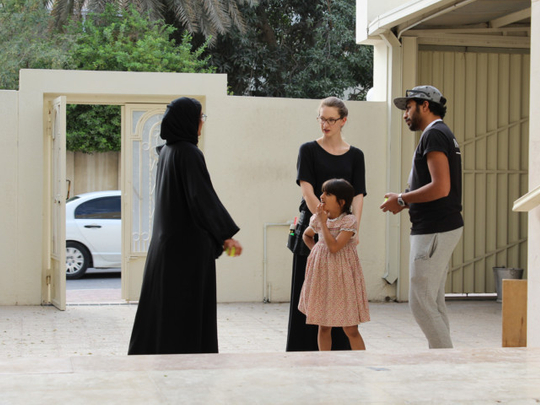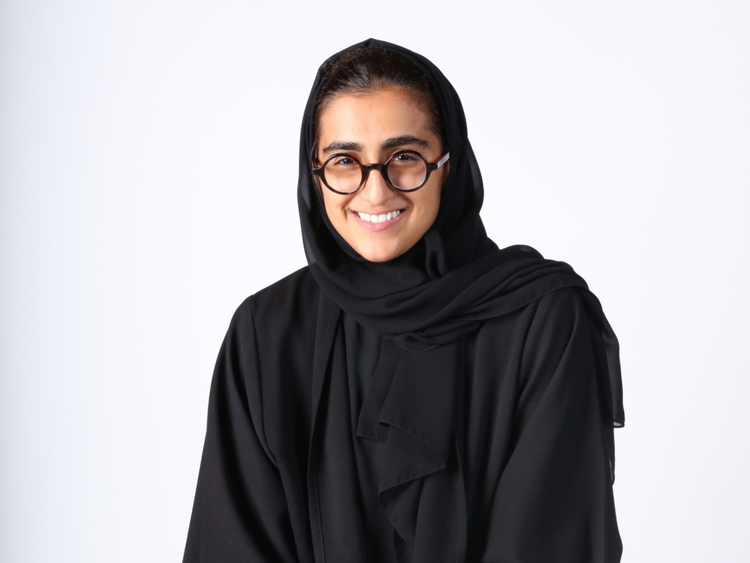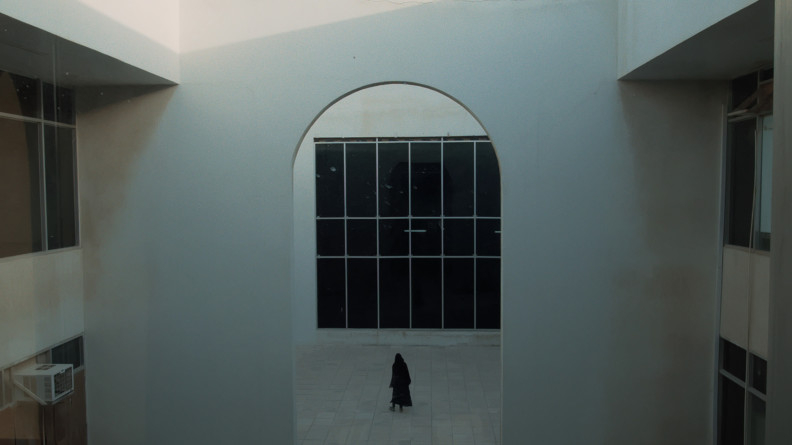
Doha: A young emerging filmmaker, Rawda Al Thani exudes a great deal of confidence. She may only have one completed short film to her name, and one in the works, but Al Thani knows where she’s going.
The 23-year-old is among the 11 Qatari filmmakers taking part in Qumra 2017, a Doha Film Institute (DFI) initiative that looks to support and promote local and regional filmmakers.
“I want to make a difference in my community,” Al Thani told Gulf News, on the sidelines of the festival taking place this weekend in Doha.
“Maybe it didn’t make sense for a girl to make films in this region but my family made me realise it didn’t make a difference what profession I pursued as long as I was willing to work hard,” she said.
Coming from a family of two professionally successful women, Al Thani didn’t have to look too far to find role models.
One of her aunts is an archaeologist and the other, a professor of medicine.
The subject of her first film, “I Have Been Watching You All Along”, is a young woman who wanders around an abandoned cinema while being watched by men guarding the empty building.
“I like exploring Doha, finding props from within my city and going back into the history of this place which is my home,” she says, explaining the idea behind her debut short.
“Gulf Cinema used to be one of the most popular cinemas back in the day. I used to go there as a kid until it was shut down a few years ago. I wanted to go back there and make the film in a place that I cared about.”
Al Thani’s deep connection with the local community, especially its women, is noticeable.
She feels it is important for women to enter the filmmaking industry and take on the several roles it has to offer.
“Women can still contribute to the industry and the community by taking up jobs related to the arts and media industry, such as writing, fashion, make up, art. As more and more women see other women from their community and their region in the industry, they feel comfortable about filmmaking as a profession.”
Despite having a supportive family, Al Thani understands that all Qatari girls may not have it as easy.
“In Middle Eastern culture it may be common for men to be at work for the whole day but it becomes difficult for women to be away with large groups, which include men, for long hours. However, it would be easier for women and their families to accept this profession if these groups or projects include more women, or just women.”
DFI’s Qumra initiative, which is now in its third year, has seen an overwhelming majority of girls in the local talent pool.
Its CEO, Fatma Al Remaihi, calls Qumra a “truly unique event” as it is geared towards highlighting emerging filmmakers through “comprehensive support”.
“Qumra contributes to supporting the local film industry and in positioning the role of Qatar to empower the next generation of film professionals,” she told Gulf News.
Seven of the 10 filmmakers in the first year and four of the seven in last year’s edition were young women.
Amal Al Muftah is another self-assured Qatari filmmaker whose award-winning film, “Al Hamali”, based on porters helping shoppers at the Souq Waqif went viral in 2014 and brought her instant, unexpected fame.
“I wasn’t expecting it to become so famous, especially since it was a project that I completed in less than a week,” she says, reminiscing about the flood of attention that came her way back in 2014.
For Al Muftah, the path to becoming a filmmaker was a little more tricky than her contemporary, Al Thani.
Despite coming from a family of regular cinemagoers, the 22-year-old had to win her parents over.
“Until my films started shaping up and receiving supportive comments, my parents were a little sceptical of my career choice as I was a very bright student and they thought I could put it to better use by studying medicine.”
She has now come a long way from that initial hesitation and has worked on diverse subjects and forms of filmmaking such as a documentary on Syrian refugees in Turkey, ad films and narrative films based on Qatari themes.
In her view, girls making films in Qatar or the Gulf region have it “ten times easier” than their male counterparts due to a lack of financial burden.
“Being a female gives you so much freedom to do what you want because the Middle Eastern family construct puts emphasis on the male to generate income but there are no such expectations from women.”
She plans to make full use of this “freedom” by continuing to experiment different subjects and approaches to filmmaking.
“The local filmmaking and art industry is thriving as more and more students and young graduates are generating content and stirring up conversations.”
As for her contemporary, Al-Thani, there are plans for pursuing further education in filmmaking but not before she has done her bit to further widen the space for women of her community.
“There are a lot of young female filmmakers in Doha and I want them to feel that they are helping make a difference,” she says, adding that it is of supreme importance for Qatari girls to enter this realm.
“Women have their own stories to tell and men can’t tell them. They need to be able to tell their own stories.”













